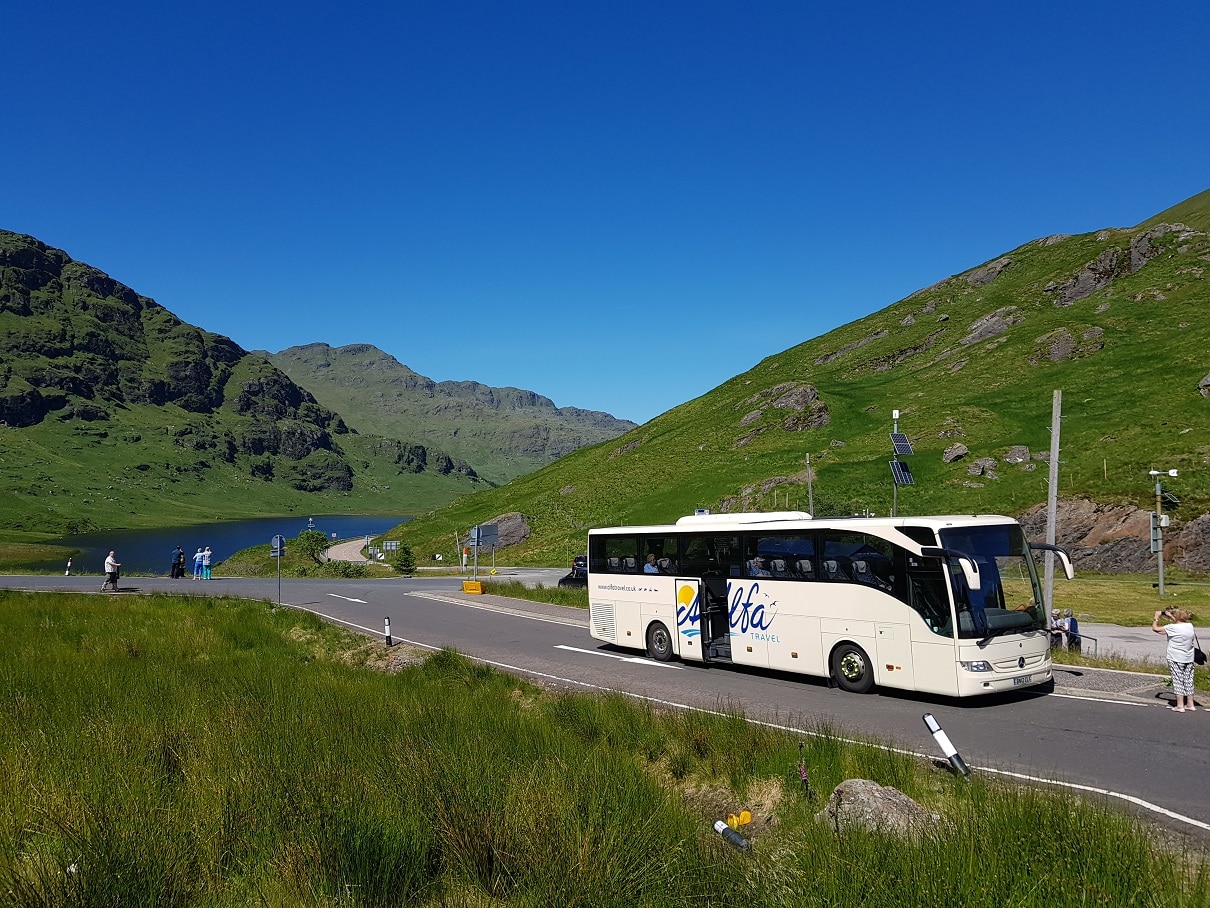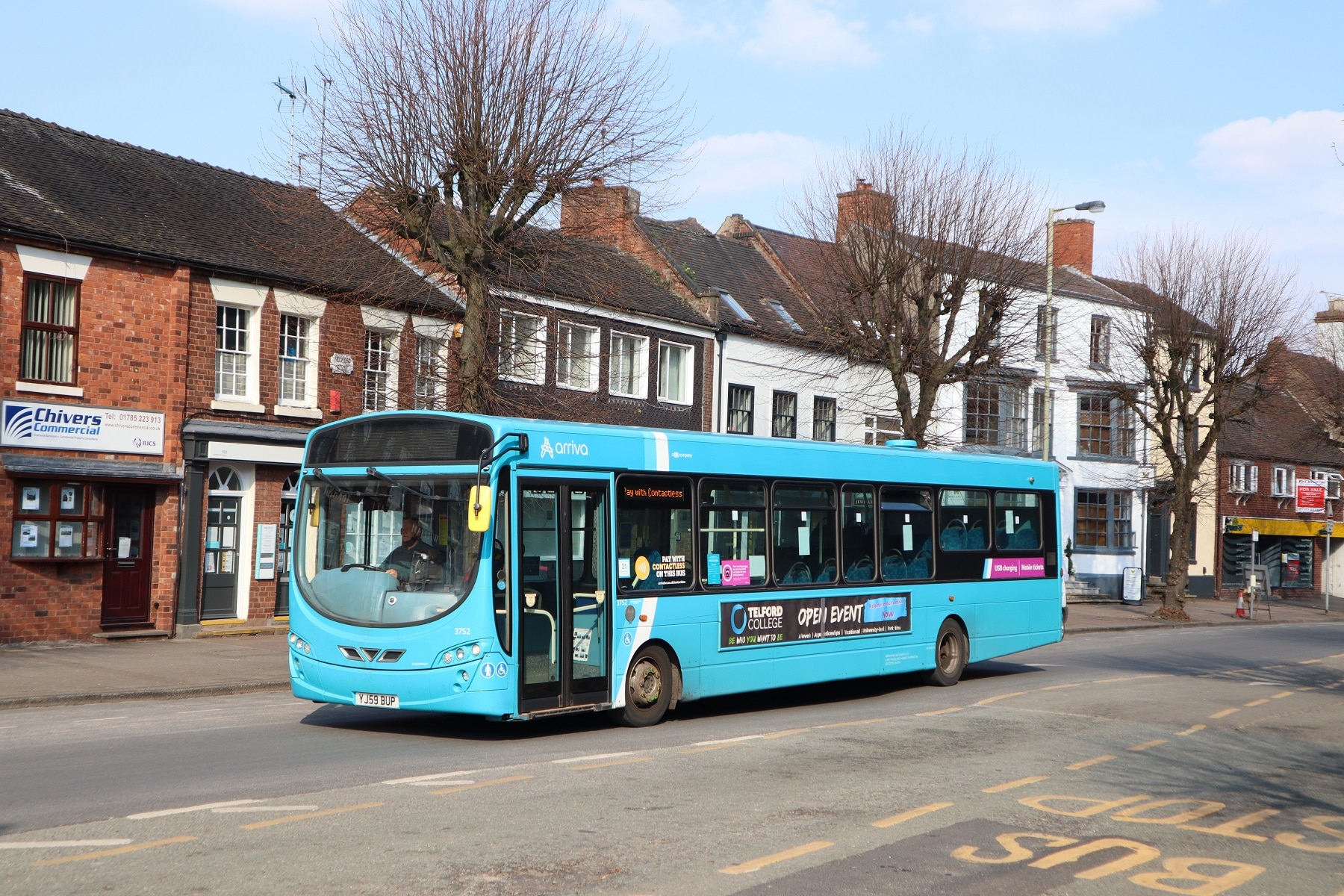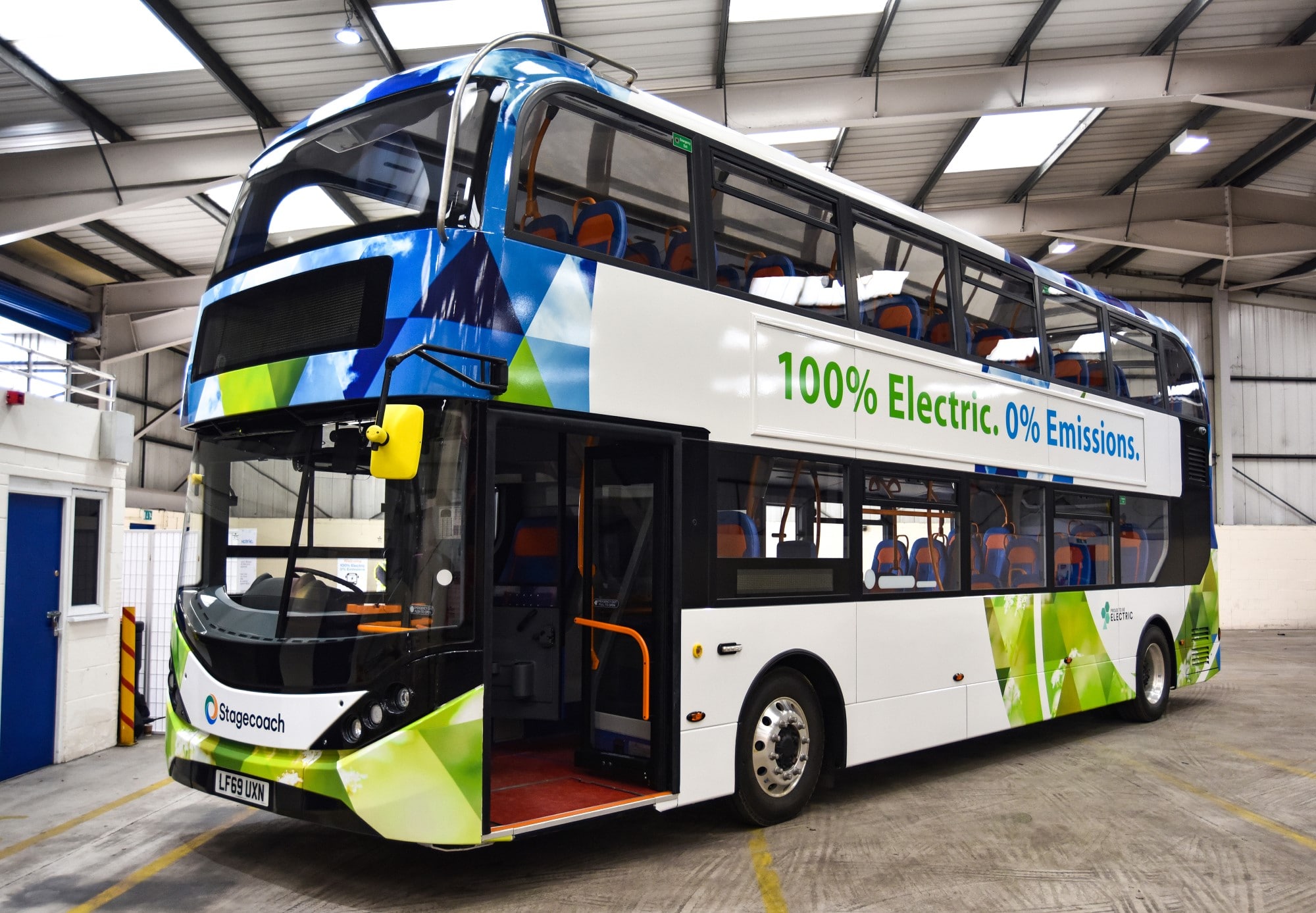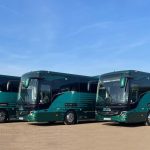The DVSA Earned Recognition (ER) scheme has proved popular among coach and bus operators. In early December, 81 of the 346 O-Licences that have been accepted into ER are from the passenger sector. The number is likely to increase in 2022 with other members of the industry already showing interest.
According to DVSA guidance, Earned Recognition is a way for operators to prove that they meet the highest driver and vehicle compliance standards. Acceptance and ongoing membership relies on an audit process, while digital reporting of KPIs where required enables DVSA to monitor participants’ performance. ER members are considered “exemplary operators” by the Agency, and participation has the benefit of reducing the likelihood of interaction with DVSA staff for routine checks, among other positives.
However, ER may not be for everyone. While two members speak positively about their involvement – and one of those believes that what ER involves will become mandatory in the longer term – another is sceptical.
It believes that DVSA resources occupied by ER would be better focused on traditional ‘boots on the ground’ enforcement. A fourth sees membership of ER as a long-term aspiration but caveats its view with a comment that the challenges currently being faced across the sector are more pressing consumers of time for now.
Founder Member finds DVSA Earned Recognition to its taste
24 PSV operators were part of ER at its inception. They are thus accredited by DVSA as Founder Members. Among them is Allenby Coach Hire of Surrey. It has five vehicles, fitting with DVSA’s stated aim that the scheme applies equally regardless of an operator’s fleet size.
Early in 2022, Allenby will undergo its third routine ER audit. A cost comes with that, and while the coach sector has suffered greatly since March 2020, Director John Dewberry says he had no hesitation in spending the money to maintain Allenby’s membership.
He observes that it is important to for an operator considering applying to ER to take a proactive approach to the scheme. “If a view is adopted that ER is something that will come along anyway in the future, the operator will be OK,” he notes.
Allenby took that stance when considering whether to apply. “We realised then that we were already doing almost everything that ER requires anyway,” John continues. Little else was needed by the Warlingham business; it invested in software to allow vehicle compliance data to be recorded and transmitted digitally, but other than that and a few minor items identified by the initial audit, it was well positioned to get onboard.
Unlike some operators, all of Allenby’s planned vehicle maintenance is carried out by a local main dealership. That business is familiar with ER, and records of its work are uploaded to the same DVSA-approved digital system that the operator uses. Tachograph analysis is handled by a third party on a similar basis.
Benefits that come with Earned Recognition are appreciated
John is clear that the benefits to Allenby of being part of ER are significant. He gives credit to DVSA’s team, likening it to being “a bit like having a headmaster behind you.” Knowing that the Agency will be made aware of any compliance issues should they occur is never far from his mind.
Also useful is that ER members are excluded from routine roadside enforcement activities. That is appreciated by drivers, and it is valuable when on busy coach parks, John continues. He uses Hampton Court Flower Show as an example. “There could be 150 coaches there, so knowing that if DVSA visit ours will not be examined is heartening.”
ER members are permitted to use the scheme’s logo as a marketing tool on their website, emails and printed material, but not vehicles. John is not convinced that it has brought any additional work to Allenby.
“The outside world does not know what Earned Recognition is,” he says. “We asked a school whether it would favour using an ER member. It was totally in the dark about the scheme.” He also articulates some disappointment that ER participation was not factored into the procurement of transport at the recent COP26 climate change conference in Glasgow. Those items aside, the positives outweigh any minor gripes and Allenby is pleased with its involvement with ER.
Recent addition to Earned Recognition praises DVSA
At the time of writing, the most recently accredited PSV member of ER was Alfa Coaches of Chorley. It provides vehicles for Alfa Travel’s holiday programme. Operations Director Paul Bull says that he first looked at a variety of other accreditation schemes but settled on ER as far back as 2018.
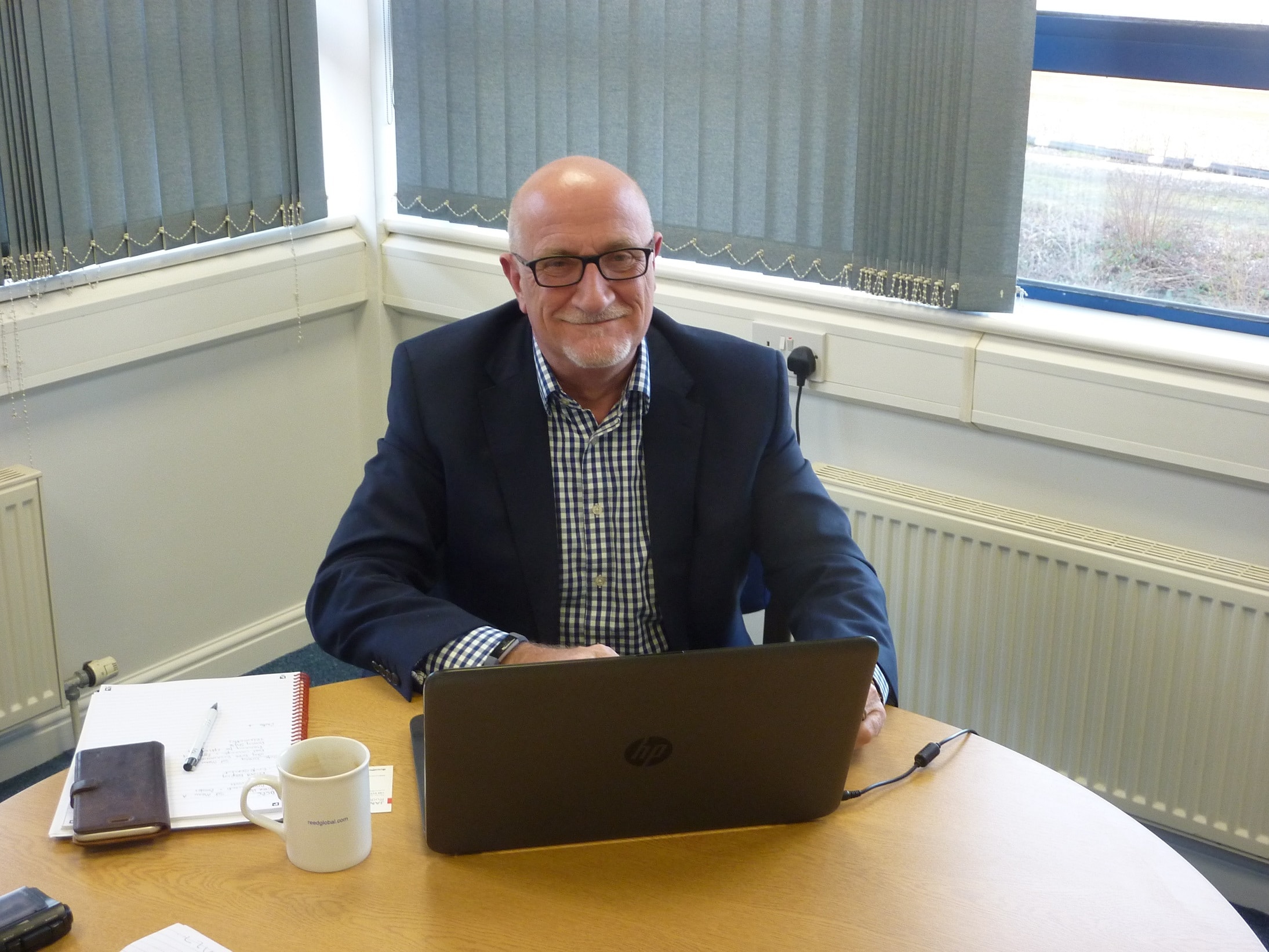
Alfa Coaches focused on ER when operations restarted in May of this year after earlier beginning the transition of its compliance to TruTac’s cloud-based products on a module-by-module basis.
“Our view is that ER sends a strong message: ‘This business knows how to manage compliance’,” says Paul. Comparing ER to non-industry-specific accreditation schemes is worthwhile, he adds
Some of the latter do not require ongoing assurances that the participant meets the standard. ER does. Paul underlines John’s point how knowledge that any issues will be flagged to DVSA is something that is guaranteed to keep minds sharp.
As is permitted by ER, Alfa underwent its initial audit before applying for membership. That was passed with flying colours and Paul is complementary about how quickly DVSA administered its submission.
“We were approved within a few days of applying, which was very pleasing. Our original plan was to unveil our membership of ER at our annual pre-season conference with employees in early 2022, but the speed with which DVSA responded changed that.”
Alfa Coaches’ vehicles and drivers are often away from base for periods of time. In addition, the Chorley operator is like Allenby Travel in that maintenance of its 48 Mercedes-Benz Tourismos is contracted out.
Those factors must be considered in how the reporting process is structured. But Paul adds that neither has proved difficult to deal with. Maintenance records sent from the local service point are uploaded to TruTac without an issue and driver compliance information is easily obtained.
Participation also ‘about our pride as an operator’
Paul accepts that ER comes with an audit cost, and if an interested operator lacks the necessary digital systems to generate the KPIs that form part of the scheme, that also needs to be factored in. But like John, he says that the comfort of vehicles not being subject to routine stops is valuable.
Alfa is hopeful that use of the ER logo on its stationery and brochures will underline among customers the onus that is placed on compliance, although Paul takes the pragmatic view that many of those people may not be clear about exactly what the scheme represents.
“Membership is also about our own pride as an operator. We have taken our compliance to a level we are happy with, and this will keep us there.”
Non-members’ views on scheme are mixed
routeone also spoke to two coach operators that are not members of ER. Their views on the scheme differ. One, based in the Midlands, sees membership as an aspiration that will likely form part of its strategy for 2022 and beyond. But its Managing Director says that more pressing things are in hand currently.
“We have seen such upheaval over the past three years. The work is there, but our difficulty is covering it with the driving resource we have available,” they explain. “Doing that is stressful at the moment, and from speaking to other family-owned coach operators I know we are not the only business in that position.”
However, the MD adds that they are always looking to the future and how they continue to develop their business. Working with IRTEC on engineers’ qualifications is on the radar and potential for ER membership may be formalised when a long-term strategy is devised. The problem right now is knowing when the time to do that forward-looking work will come available.
In Scotland, another small operator is sceptical about ER. A Director says that despite its maintenance standards being high, there have been issues with DVSA staff’s knowledge when both taking vehicles for test and at the roadside. All have been resolved in the operator’s favour, but the experience has left a negative taste. They would prefer that the Agency concentrates “on the basics.”





















